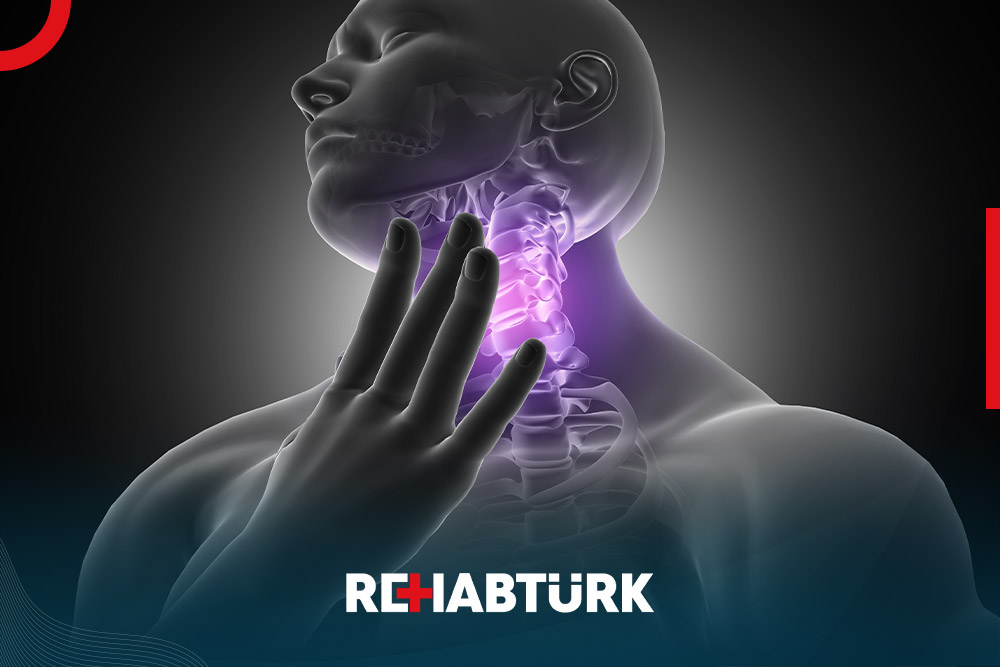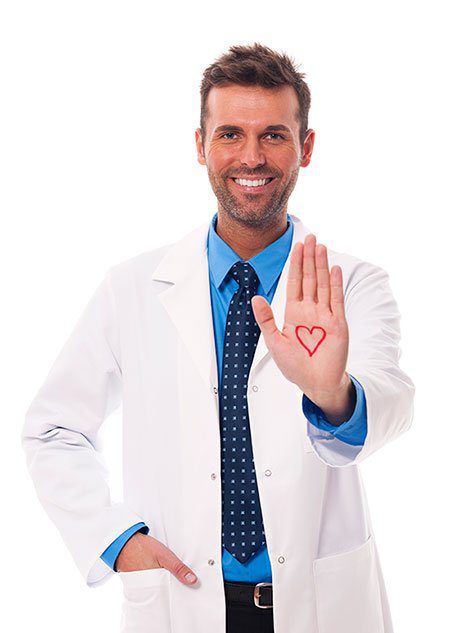Head and neck cancer and its treatment in Türkiye
Head and neck cancer
Head and neck cancer is a group of cancers that begin in or near the throat, larynx, nose, sinuses , or mouth. Usually, it begins in the cells that line the surfaces of body parts (squamous cells).
There are five main types of head and neck cancer. They are named after the specific part of the head or neck that they affect. Symptoms vary slightly from person to person.
Symptoms of head and neck cancer
1. Oral cavity:
This type of cancer affects the lips and the inside of the mouth. This includes:
- gums
- cheek pads
- Under the tongue
- The inside of the upper part of the mouth (the hard palate)
- The anterior two-thirds of the san
Symptoms of oral cavity cancer are:
- Red or white patches in the mouth, including the gums and tongue
- Swelling of the jaw, including swelling that makes false teeth ill-fitting
- Bleeding or pain in the mouth
2. Pharynx:

This is another name for the throat. It is a tube about 5 inches long that runs from behind the nose up the esophagus (the tube in the chest leading to the stomach) and includes the pharynx, tonsils, the back of the tongue, and the soft palate. This is the soft part at the back of the roof of the mouth.
Symptoms of nasopharyngeal cancer are:
- Difficulty breathing or speaking
- painful swallowing
- Neck or throat pain that does not go away
- Earache or ringing in the ear that keeps recurring
- Hearing problem
3. The larynx:
The larynx holds the vocal cords and the epiglottis (that little piece of flesh that hangs at the back of the throat) and the epiglottis covers the larynx when eating or drinking to prevent food and liquids from entering in other words (“going down the wrong tube”).
Symptoms of laryngeal cancer are:
- painful swallowing
- earache
- changes in the voice
4. Nasal cavity and paranasal sinuses:
The nasal cavity is the space inside the nose. The sinuses are small spaces in the bones of the head around the nose.
Symptoms of cancer of the nasal cavity and paranasal sinuses are:
- Chronic sinus infections that are not treated with antibiotics
- Nasal obstruction that cannot be removed
- nosebleeds
- Headache
- swelling around the eyes
- Pain in the upper teeth
- Problems with artificial teeth that are no longer suitable for use.
5. Salivary glands:
Its task is to make saliva. It is located in the lower part of the mouth near the jawbone.
Symptoms of salivary gland cancer are:
- Swelling under the chin
- Swelling around the jawbone
- Numbness or paralysis of the facial muscles
- Pain in the face, chin or neck that does not go away
Other symptoms:
We should know that each type of head and neck cancer has specific symptoms, but there are some general symptoms as well. Which:
- lump in the neck
- lumps or sores in the mouth (even if they don’t hurt)
- blood in sputum or sputum
Causes and risks
- Tobacco is the biggest cause of head and neck cancer. This includes chewing and heavy use of tobacco, not just smoking. Passive smoking (cigarette, cigar or pipe smoke) increases the risk of head and neck cancer.
- Drinking a lot of alcohol increases your risk, too.
Other things that increase the risk of head and neck cancer are:
- Too much sun exposure
- Human papillomavirus ( HPV ) , a type of sexually transmitted disease
- Epstein-Barr virus (is one of the types of common human herpesviruses).
- masculinity
- Age over 40 years old
- African American people
- Lack of oral and dental care
- Inhalation of asbestos, wood dust, paint or other chemical fumes
- smoking pot
- Not getting enough vitamins A or B
- Gastroesophageal reflux disease
- Weakened immune system
Diagnosis of head and neck cancer
During an annual exam, the doctor should look inside the mouth, nose, and throat. They should also check for lumps in the neck.
This is necessary in cases where the person uses or has used tobacco in the past, or has been drinking alcohol regularly.
If a person has symptoms of head and neck cancer, or if the doctor finds anything unusual at the annual check-up, the person may need to have some tests. These include:
- Blood tests
- urination tests
- HPV test
- endoscopy (the doctor looks inside the head and neck with a tube inserted through the nose and down the throat)
- Tissue sample (biopsy) and laboratory tests on the tumor, if any
- Imaging tests such as CT scans and X-rays
If a person has head and neck cancer, in this case the doctor will try to find out how advanced it is, or what stage it is. He will also see if it has spread to other parts of the body.
Head and neck cancer treatment:
The type of treatment depends on a few things, such as:
- The location of the cancer
- What stage has the cancer reached?
- The age of the injured
- his general health
- If the infected person has the human papilloma virus
The patient may receive only one type of treatment, or he may receive a combination of treatments. Options include surgery, radiation, chemotherapy, and targeted therapy.
Surgery : for head and neck cancer
The doctor may start with a laser treatment of head and neck cancer or remove the tumor and some of the healthy tissue around it. If there are chances of the cancer spreading, the doctor may remove some small glands called lymph nodes in the neck.
Side effects and risks depend on the type of surgery you have, including:
- loss of voice
- hearing loss
- Difficulty chewing or swallowing
- swelling of the mouth or throat;
If the surgery changes the face a lot, or makes it difficult for the person to eat and breathe, they may need another surgery.
Radiation: The doctor may use X-rays or other energy particles to kill cancer cells. Some side effects include:
- Pain or difficulty swallowing
- changes in the voice
- Anorexia
- Red or irritated skin
- Thick sputum or very dry mouth
- Feeling nauseous in the stomach
- Tired
- sore throat
- sores in the mouth
Chemotherapy : for head and neck cancer
The patient is given a drug to prevent the cancer cells from growing and dividing, which should destroy them. Here are some possible side effects:
- feeling tired
- infection
- Feeling nauseous in the stomach
- Hair loss
- Anorexia
- Diarrhea
Targeted therapy : for head and neck cancer
The patient is given drugs that act on genes, proteins, and other parts of the cancer cells. Side effects of targeted therapy depend on the drug used. But more often, it involves problems with the skin, hair, nails, or eyes.
Immunotherapy : for head and neck cancer
This treatment uses parts of the affected person’s immune system to help fight the cancer. Doctors can either stimulate his immune system to attack the cancer cells, or they can give him proteins (normal medicines) to boost his immune system.
How can I book for head and neck cancer treatment in Türkiye?

- Free medical support on the phone: You will have a dedicated representative for your health condition who is always ready to answer your questions.
- Free consultation with a specialist doctor: Your medical representative will consult with a number of doctors and hospitals to find the best possible treatments.
- Free travel visa arrangement: We will contact the embassy in your country to assist you in obtaining a visa to visit Türkiye.
- Free itinerary planning: We will create a schedule for your medical trip to Türkiye.
- Free translation of documents and reports: We will translate medical documents and reports into Turkish on your behalf.
- Free support and monitoring: We will monitor the stages of treatment and be by your side every step of the way.
- Free instant translation: We will be with you during the treatment stages to provide translation between you and the medical team.
- Free accommodation and transportation coordination: We will book accommodation for you and your companions in Türkiye, along with transportation services.
Contact REHABTÜRK doctors for more information about the procedure and to evaluate your medical condition.

